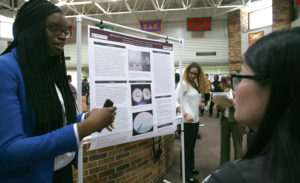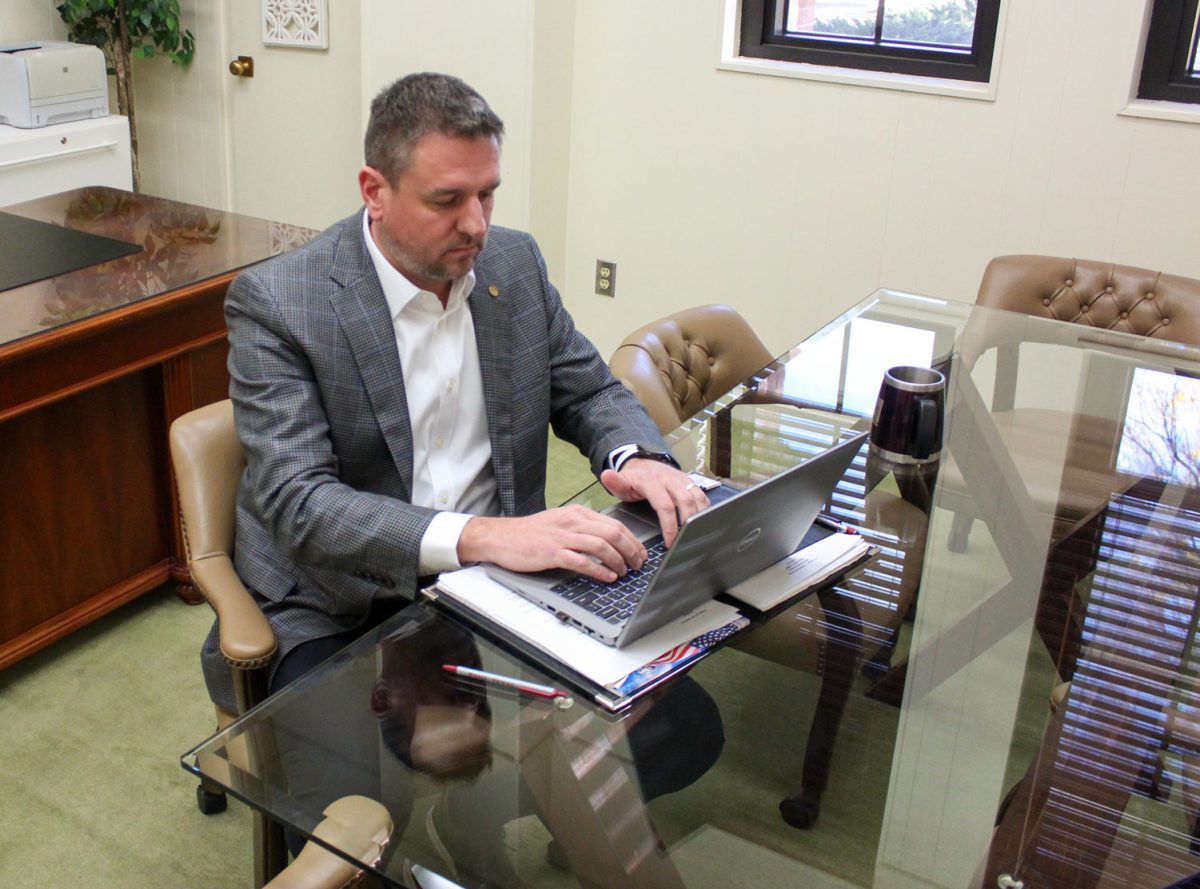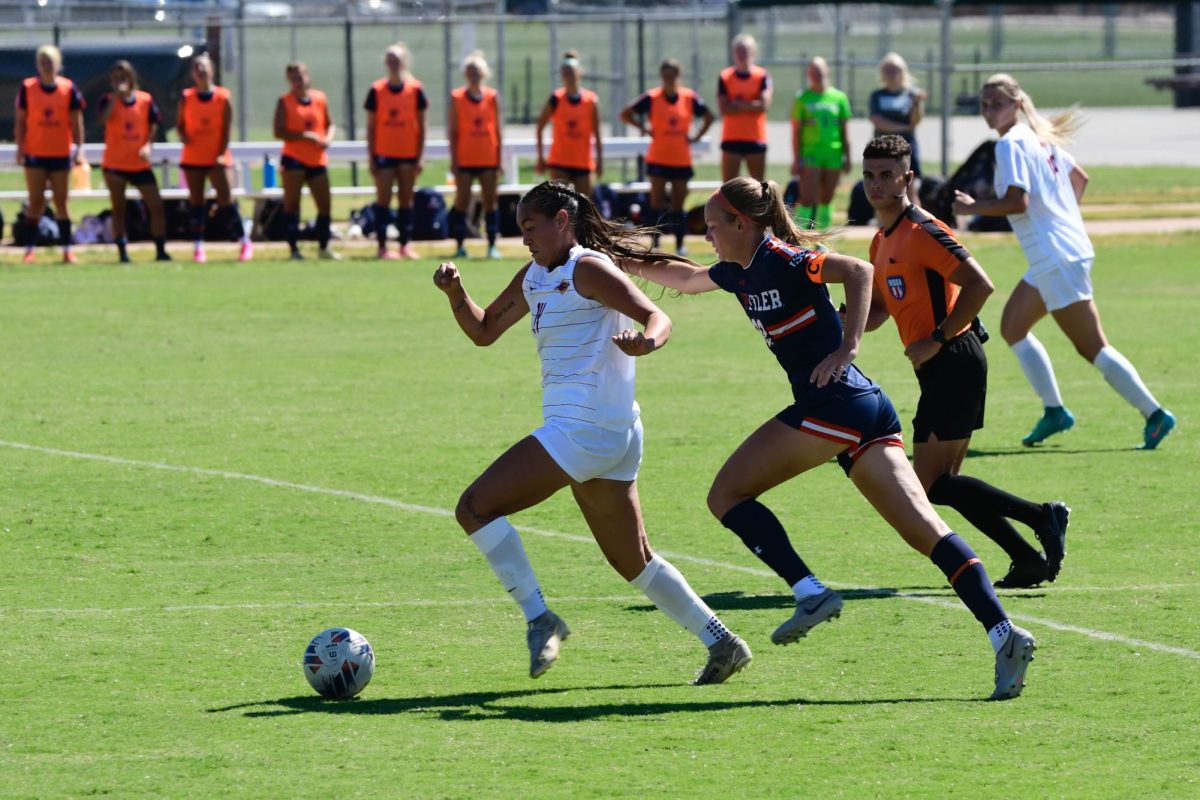
Thirty-two research projects from all campus colleges will be up for review when the Enhancing Undergraduate Research Endeavors and Creative Activities holds its forum on April 26.
EURECA scholars presented preliminary draft posters of their research endeavors in two 45 minute rounds of, “Posters on the Go,” in the Clark Student Center atrium on Feb. 27.
“As the research project advances, the updates will be posted and they will present their research at the forum. Everybody is very well-informed on the project. I mean they wouldn’t be here if they didn’t have a passion or interest in their project,” said Julie Scales, undergraduate research secretary.
‘Posters on the Go,’ a precursor to the EURECA forum, was postponed last week, after campus closed for two days due to icy weather conditions.
Scales said the event went well despite a few challenges.
“There were work and class conflicts that occurred, but we certainly don’t hold that against the students because we had to reschedule. This was the only day to get that space because the atrium use is very popular so we made the best of it,” she said.
Since its establishment in 2013, Scales said students have gained a lot of insight from their experience with EURECA.
“EURECA has provided a platform for undergraduate students to expand their knowledge and showcase projects they are passionate about that could make a difference,” Scales said.
Students began working with their faculty mentors on the first day of the semester in preparation for the forum.
Scales said the research projects and forum provide great opportunities for networking and can open many doors.
“If students are passionate about their projects and they share that information with their classmates, then professors share information with their classes. They’re connecting with students like you and me who get to learn something. I don’t know anything about E.coli but there was a whole poster about it, and so it’s things like that,” said Scales.
Melissa Rose, biology junior, is doing her research project on the effect of pH on the cell surface hydrophobicity of the fungal pathogen, Candida Albicans.
The organism causes a wide array of infections, including yeast infections in women, oral candidiasis (thrush in babies) and can also enter into the blood system and become systemic.
“The project I’m doing this semester is actually a continuation of a couple of different projects I’ve done. It’s an important fungal organism that a lot of people don’t know about. I’m hoping to at some point get a better understanding of the actually workings of the cell components,” Rose said.
Rose said she is looking forward to presenting her research at the forum in April, as it will help with her future aspirations.
“What I want to do after I do my research here [is] go on to my PhD, and so if I can at some point apply what I’m learning from this into that, then I think that would be great. When I finish the pH stuff, I’m going to write a paper and I plan to submit it and get it published,” she said.
Garrison Horton, English junior, explored the topic of Russian decadence.
“Decadence is what happens when people get too rich and their societies start to fall apart so they stop living in their giant castles, their wealth stops trickling down or having sexual relations outside royal families,” said Horton.
Horton said his research is important to him not simply because it’s his major, but because people could benefit from the information.
“Maybe there are some lessons from decadence we could take,” Horton said. “People in decadence became so obsessed with aesthetics that they couldn’t function as human beings. And not to sound like the guy who’s always bashing on millennials, but we live in this Instagram age where people are obsessing over aesthetics, it’s how they’re making their living, it’s actually great, but how far can it go?”
The university funds the program annually which exceed more than $200,000 per academic year. Students receive scholarships up to $800 and up to $500 expense funds for their projects.
Out of 51 research applications from all of the colleges on campus, 46 were funded.
“Everyone that has a research project submitted a proposal and the proposal was reviewed and scored by a panel of faculty peers. The scholarships are based off of the timeline and how much time they invest in their project, and that’s all lined out in their proposal,” Scales said.
Events calendar:
March 28. | Posters on the Go
April 26. | EURECA forum












